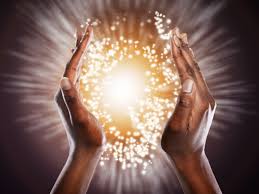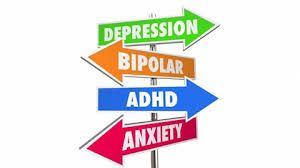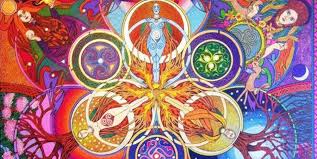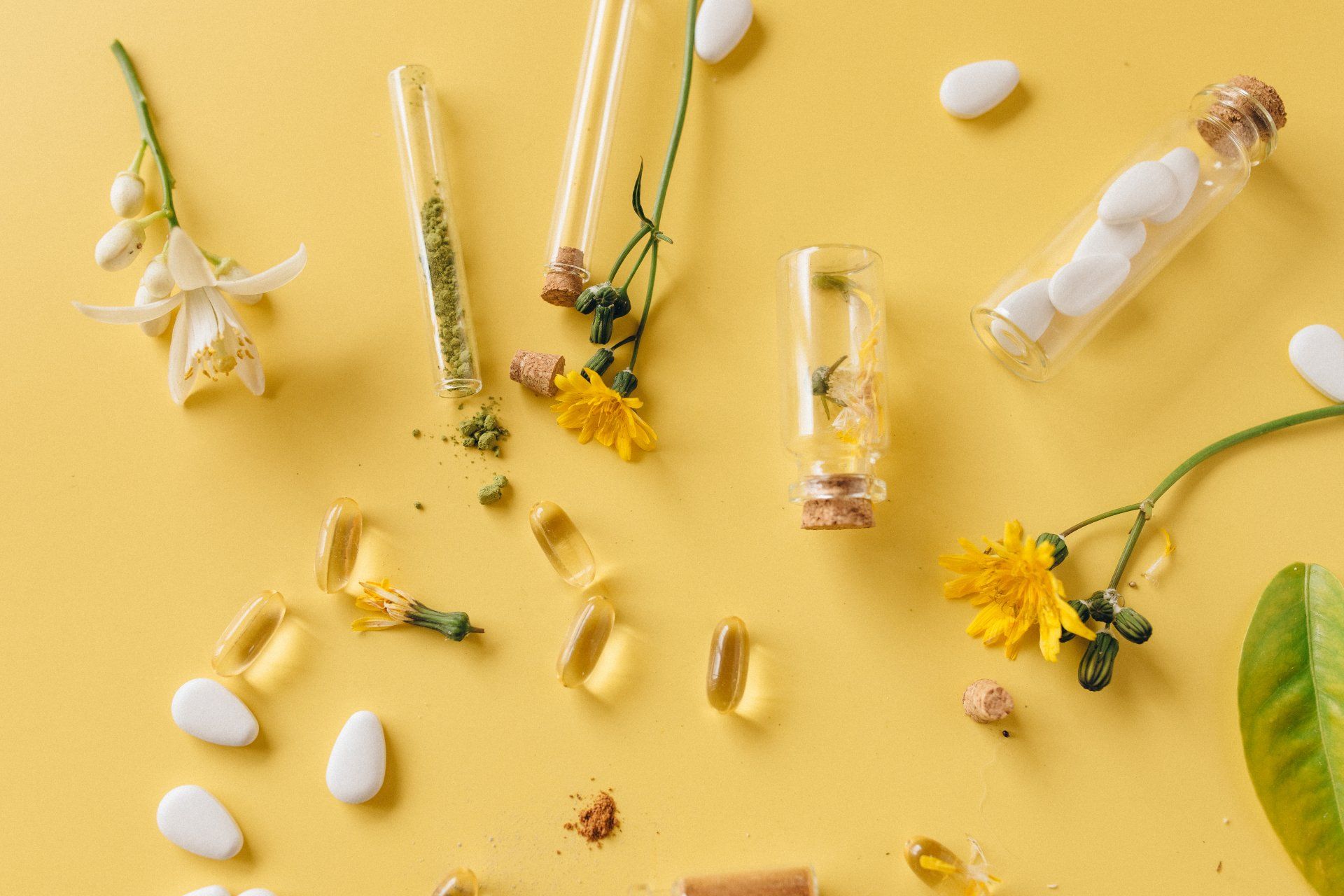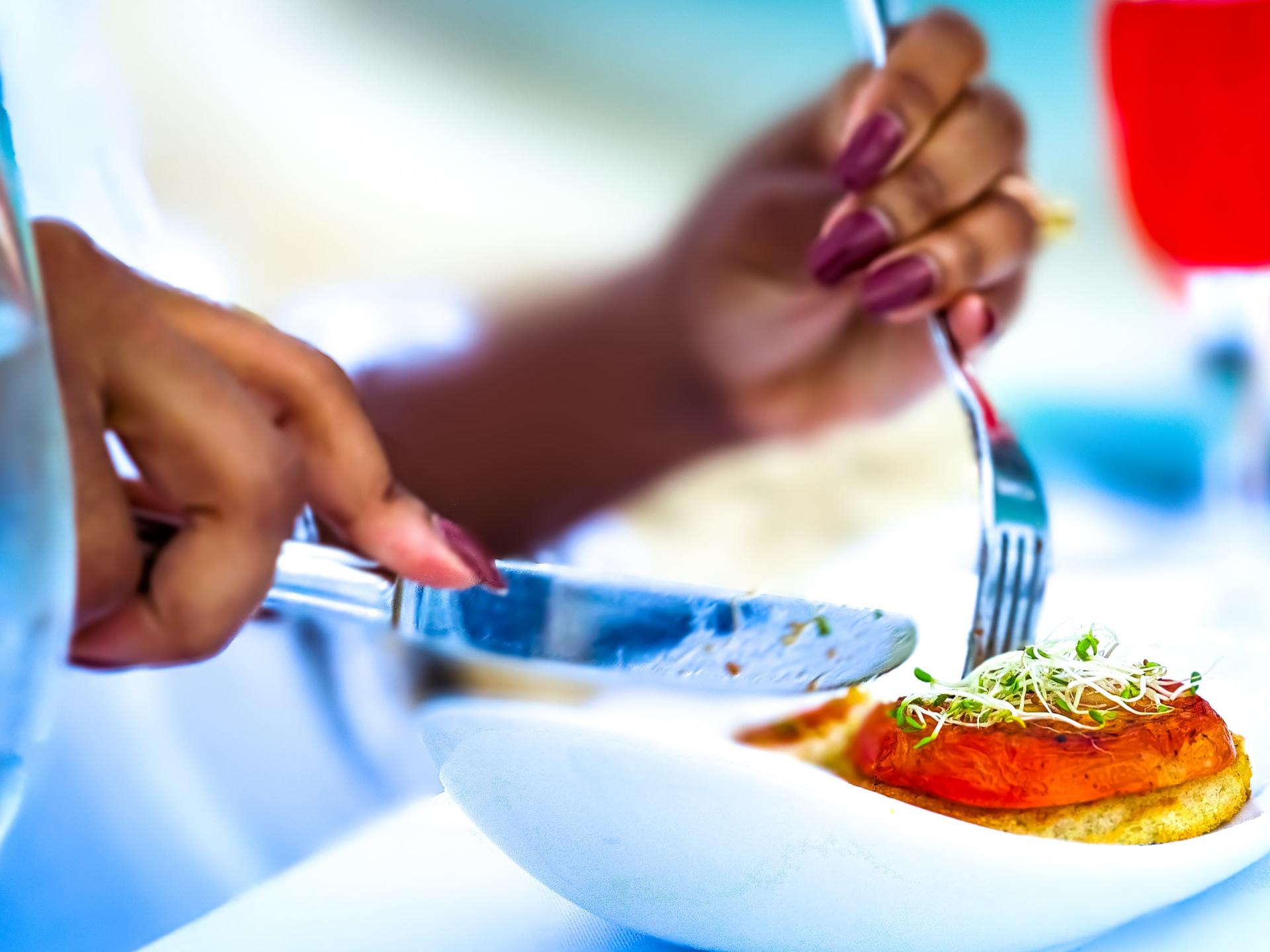AYU-OK Forum
The ultimate relationship skill is to know your own triggers and learn to intelligently deal with them.

Let love flood in.
Your love for someone has shattered to pieces. Every edge of your heart cuts; every corner twinges with pain and nothing seems to fit back together.
While you may see that your heart is shattered, know that now there is space for light to enter.
Where is the light?
The light is the love already within you.
The light is subdued and hidden. It seems distant. You had completely forgotten about it.
The good news is that you can access the light again by cultivating your love of yourself.
Wherever you see emptiness, let the light come in. Imagine sunlight filling the void.
When you notice craters of loneliness, let the light in. Imagine love filling the void.
When you see ice blocks of pain, let the light’s heat melt them. Imagine love melting the void.
What we’re talking about here is love that’s already within you—unleashing, releasing, and recapturing it. We’re not talking about love for anyone or anything else.
I’m asking you to tap into the love already there.
Cultivating this love requires that you mend your heart.
It requires that you slow down and take care of yourself. It requires long walks, meditation, and room to breathe.
It requires healthier eating, rekindled friendships, and self-care.
Learn that you are enough as you are. No one can fulfill you or complete you as much as you can fulfill and complete yourself.
Awakening experiences are moments in which our awareness expands and intensifies. We transcend the worries that normally preoccupy us and feel a sense of elation or serenity. Our perceptions of the world around us become more vivid, and we feel a sense of connection to nature, other human beings or the whole universe in general. We feel a sense of love and compassion, and there is a strong sense that we have transcended a limited state, and that awareness has become more authentic than normal. At higher intensities of awakening experiences, we may even feel that we have lost our normal sense of identiry and somehow become one with the whole world.
“For a seed to achieve its greatest expression, it must come completely undone. The shell cracks, its insides come out and everything changes. To someone who doesn’t understand growth, it would look like complete destruction.” ~Cynthia Occelli
Let’s face it - break ups or letting go of an infatuation can be awful. They’re painful and messy and moving out of something comfortable and familiar is very often frightening. In fact, sometimes fear is the only thing that keeps us in unhealthy relationships. However, moving away from something that we know is not working even when it’s comfortable is the journey of personal growth. We can spend time in our own minds decocting a love story with out infatuation or with our dream partner, this can be very unhealthy if you are in a relationship or not. The mind starts to create its reality as it knows no different and the more you feed that dream to more anxious you start to become.
Infatuation is a strong, overpowering feeling. It can make you do the most unheard of, inane things for the sake of your intense feelings for the object of your infatuation. However, while you may think that you’re head-over-heels in selfless love, what you feel, being merely infatuation, is essentially selfish.
This is because when you are infatuated, you solely focus on how the other person makes you feel, rather than consider whether or not that feeling is reciprocated. Thus, infatuation can cause us to act and think in selfish ways, in the sense that you “take” from the other person and let this taking fill and assure you, therefore justifying the relationship or the feeling as “love.”
Unless you are experiencing a healthy crush within reality (just attraction and the feeling of connection), your infatuation is a result of an unhealthy dopamine reward circuit that your brain has essentially created as a survival mechanism.
We will talk more on the topic first on infatuation/assumptions and how harmful this can be for your health.
Obsession, addictive love, or lust- infatuation can knock you off your feet in much the same way as falling in love. ... With an unhealthy infatuation comes an immaturity of expression and an attachment that reveals issues going on in your life rather than a display of healthy love.
On a physiological level, infatuation puts your brain into overdrive, opening the floodgates of feel-good chemicals. Rushes of dopamine can change the wiring of your brain, giving you intense highs followed by extreme lows; talk about disorientating!
Experts say prolonged infatuation eventually turns into limerance, an involuntary obsession with a partner that is usually marked by excessive thoughts, feelings, and a desire to have your those feelings reciprocated. Don’t freak out just yet! A healthy dose of infatuation is a normal start to any relationship. So, how do we distinguish fantasy from reality, in other words, how do we know when it’s love or infatuation?
Firstly, think about all the reasons why it is unhealthy and keep reminding yourself of these facts. This constant reminder should help you to focus on why it may not be the best decision for you right now. Whether it's because you work together, there is a big age difference or it would involve an affair- take into consideration others that might get hurt and your reputation.
Infatuation is simply intense feelings of love toward someone or something. Like money, there is nothing intrinsically wrong with those feelings. The problem is that infatuation typically lacks friendship, it lacks commitment, in short—it lacks relationship. Infatuation can attach itself to the innocuous (someone you admire at a distance), the inappropriate (someone who is already married), or someone of the same sex, to your boss etc. etc,
infatuation can lead to anxiousness, depression and infatuation can trap us and lead to impulsive decisions. Ultimately, we need to remember that infatuation is a state of being completely carried away by unreasoning passion or love. If you or someone you know is intensely infatuated, what can be done? Here are two suggestions:
1. Get into a real relationship: Infatuation is based on a valid human need—the need to love and to be loved. So if one’s infatuation is feeding a need for romantic relationship then the answer is to get into a real relationship with an appropriate person that can fulfil these needs. The first step is to give up and move away from the unhealthy infatuation. So how do you do that? Try my next suggestion-
2. Don’t nurture it: Develop alternative focuses. When infatuation grips you, choose to shift your attention elsewhere. If infatuation is not nurtured, in time it will melt away. I appreciate that neither of these steps may be easy. In some cases it may require counselling to help you develop real relationships. But when healing occurs the “intense feeling of love” can play the proper role in your life.
MORE FOR YOUR REALITY CHECK
When you’re infatuated with a person, you tend to think that person has all the qualities in a romantic partner you’ve ever wanted and more—you think that they’re perfect. However, when you’re in love, you have a more realistic grasp on the fact that the person is not perfect, but you love them anyway and accept their flaws.
Selfish desires. When you’re infatuated, you want that person to always be with you. Often, you both forget your responsibilities because you want to be together. You expect everything else to take a back seat. When it’s love, however, you become more selfless and more considerate of each other’s needs and priorities.
Possessiveness. It’s common to want to be with each other 24/7 when you are infatuated. You’ll likely always want *or even demand* that they spend all their time with you, resulting in your becoming possessive and even insecure.
You want their presence to be an assurance of your feelings. But when you’re in love, you understand that they don’t have to be around you for you to feel good about yourself or your relationship.
Thinking goes haywire. Where you could once pride yourself for being rational, infatuation has now taken hold of your brain and is making you think the silliest, most illogical thoughts. It seems like your mind has a new way of tying every thought you have to the object of your affection. You hear a song on the radio? It’s like it was written for the two of you. Almost everything reminds you of them, from the topic on the news that day to the shirt that your colleague is wearing.
Losing focus. You’re doing one thing, but your mind is wandering off to thoughts about your crush. Whether you’re at work, in school, doing chores, or even hanging out with other people, you can’t seem to perform at your once-optimum level because your focus is not on what’s in front of you. Instead, you’re constantly letting your thoughts of that special someone totally consume your focus and drive.
Infatuation can set you up for a lot of disappointment and heartbreak, especially when you mistake it for love. Being infatuated can feel a lot like being in love. However, the best way to distinguish love from infatuation is to keep in mind that infatuation is driven more by feelings. And feelings are fickle.
Relationships are both the greatest gifts and hardest lessons life has to offer. They are beautiful yet hard and complex if are not complete within ourself. Relationships in your life are there as a source of unconditional love and support or are chosen out of deeply unconscious reasons or misguided core beliefs. Many of us choose to stay in relationships not because they serve our expansion or highest good, but for these reasons such as:
- A sense of obligation
- Guilt or shame
- Fear of being alone or fear of abandonment
- Fear of social banishment/ exclusion, of being an outcast (which is a fundamental survival fear).
- A need for external validation or codependency
- A need for financial or social security.
- Familiarity: A relationship can reflect a repeated childhood pattern between our caregivers and us and thus feels “familiar” even if it’s not loving.
- A desire to “fix” the past: A relationship can mirror a repeated toxic childhood dynamic that we felt powerless against. As adults we subconsciously recreate it so we “fix” it. We can’t “fix” it until we become conscious of it, heal the past wound rather than fix the current reflection of it.
- There are many more unconscious “Velcro” bits that keep us attached to people who are unhealthy for us.
All relationships are an accurate mirror for one’s unconscious and conscious aspects. Thus, with the help of Relationship counselling, the first step is to recognize an unconscious aspect or pattern being played out. The second step is using healing through one or more of the following tools: self-inquiry, inner child or shadow work and therapy. This in turn will affect the relationship as the reflection of the unhealthy pattern. If the other person is self-aware and willing, you can also work on healing together. Other people’s unconditional support and love can be profoundly healing.
A soulmate walks in. At the worst possible time -- or so you may think. Your soul knows it's exactly the right time. Your soul knows it's time for a change, which sooner or later you won't be able to deny.
A spiritual awakening is one where we discover who we really are and realize how we are really living. It's when we wake up and suddenly see just how much we have been pretending that we and our lives are good when the opposite is true. It's when we realize we have been denying reality and have been hiding behind a mask -- the one we have presented to the world as who we are. It's when we realize we've been lying to and betraying ourselves and everyone around us.
These awakenings of the truth -- your truth -- can't be denied forever. Underneath all the self-deceptions you've believed in, your soul is crying out to be revealed. A slow crack is occurring in the foundation of your life, and soon the truth will cause it to come tumbling down. -- whether you want it to or not.
And often that's precisely why and when it happens. A soulmate walks in. At the worst possible time -- or so you may think. Your soul knows it's exactly the right time. Your soul knows it's time for a change, which sooner than later you won't be able to deny.
Whose purpose is to awaken you spiritually to your true self. Every soul mate we meet achieves this purpose. In order to experience this profound awakening, an equally profound experience is required. This is why we have such an intense attraction towards our soulmate. We feel like we HAVE to be with them, regardless of any possible consequences. This intense need to be with this person drives us to look within and "soul-search" which we never would do had we not had such profound feelings.
But despite the love you feel for this person and despite the intensity of the attraction, it doesn't mean this person -- this soulmate -- is truly "the one." In fact, if you are married to someone else, then most likely they aren't "the one," although there have been rare exceptions. No, this soulmate, while they do have a soul connection with you, is in your life to awaken you to who you really are and to the real reason you are here. Additionally, they are showing you that you have been narrowing your options and limiting your scope of what's possible in love for you. They are your catalyst to reach for the stars.
It seems like a harsh way to bring about self-discovery and change, I know. Yet many of us are so lost in our illusions that we can't hear the calling of our soul. We are stuck in the belief that it's wrong to change or that it's going to hurt the people we love if we change. But in the end, it won't hurt anyone because the truth doesn't hurt -- only lies do. Especially lies we tell ourselves.
The truth sets everyone free. Free to explore and discover who we truly are, which, by the way, is already beautiful and divinely perfect. The truth sets us free to dive deeper into discovering why we are here. And free to experience the most profound and richly rewarding life we can dream of -- and that includes relationships. Each of us has, upon birth, inherited the divine right to experience magnificence in ourselves and in every aspect of our lives. The possibilities to have the best were never restricted -- we just somehow believed they were.
If you're already on this soul journey to uncover and express your true self, chances are you're either with or will soon be with a soulmate. Otherwise, if you're still hiding behind a mask and living an illusion, you may want to prepare yourself for a forthcoming upheaval. Your soul may be calling for a major change. And a catalyst may be about to answer that call.
by Pamela Dussault
To love yourself is to see only that part of you which is lovable.
When this is done, self-love is felt. In the presence of self-love; somehow the fear, the shame, and the guilt all melt away. Absent of the stress from these negative emotions, the mind and body begin to function optimally. This is healing.
When you are healed, you can then look upon every other person to see each of them in this same way. All that which is lovable in you is also true in them. Only love is lovable, and love is the same in each of us because it is one. There is no person absent of love within—though, through shame and guilt and punishment, people have become blocked to various degrees.
Forgiveness is the act of seeing only that part in a person which is lovable. All the rest is error, it is unreal, and it can easily be undone just by letting love melt it away. In the end, it is as though all that negative garbage was never real—for the simple reason that it never was.
Self-love is your ability to recognize and prioritize your happiness and well-being in everything you do. In many relationships today, the inability of the partners to know how to work on self-love has led to really painful break-ups.
Knowing how to love yourself first in a relationship is highly needed for the sustainability of that relationship. In relationships, there’s bound to be problems and most times, petty squabbles are inevitable. However, there is a huge need to know when to draw the line, especially when you are with a disrespectful partner and this is where the knowledge about the importance of self-love in relationships is required and applicable.
Self-love is a deeply profound acceptance of our wholeness; it is the deep honoring of the divine in ourselves. Self-love is the moment we are able to step back in our true selves, it is when we allow the love within to become our source of power, it is a celebration of the light and magic we all carry inside of us.
Self-love is remembering that the journey does not seek perfection; self-love is setting boundaries and holding ourselves accountable. Self-love is the daily transformation and the moment of growth.
Stay close to your truth + remember your why, even when people refuse to see you or choose to reject you, trust that you are divine. Stand in the alignment with your light and ability to press forward.
Before you settle remember your worth, before you stay longer than you should look at what you can gain by walking away, before you decide you’re not deserving of more remember that you are.
Love yourself first and everything else falls into line. You really have to love yourself to get anything done in this world.
Until you value yourself, you won’t value your time. Until you value your time, you will not do anything with it.
Be proud of who you are, and not ashamed of how someone else sees you.
The Upside of a Crush—Even If You’re in a Committed Relationship
Crushing on someone (at any age) can feel equal parts awkward and exciting, particularly when you’re in deep, can’t stop thinking about them for the life of you, and/or the subject of your desire feels like forbidden territory—i.e. he/she is a coworker or you’re already in a committed relationship and “shouldn’t” have a crush in the first place. But psychological astrologer Jennifer Freed, Ph.D. argues there’s no harm in harboring a crush; it doesn’t mean you’re reverting to your teenage self or that your current relationship (if you’re in one) is doomed. Freed says that crushes have a lot to tell us about ourselves—she sees them as rooted in our own unmet needs—and that they can actually serve to kick-start our mojo, even if we never act on them. Below, with her writing partner Melissa Lowenstein, Freed explores the meaning of an adult crush, and what to do the next time one strikes.
The Anatomy of a Crush
By Jennifer Freed, Ph.D. & Melissa Lowenstein
In the teen years, hormones—along with an intense need for mirroring—create the perfect storm for heart-wrenching attraction. But crushes aren’t just for high school; they have no age limit, and none of us are immune. Eros stretches his cherubic little bow, and, seemingly out of nowhere, someone becomes the object of our fascination—sometimes, to an unreasonable, insatiable degree.
If you’ve ever been in the throes of a crush, you may have come to see your crush as savior-like, and to believe that having this person in your life might solve all your problems. You may have violated your values to pursue your crush, or given more of yourself than is healthy to them because you were desperate to be in their company. Perhaps you neglected real-life commitments to be available for your crush, or you intruded upon others’ lives because your obsession careened out of control.
“Don’t panic, a crush doesn’t necessarily indicate that your current partner is wrong for you.”
These persistent and sometimes destructive infatuations are rooted in unmet needs: They are a forceful combination of the unconscious wishes and desires we have neglected and our desperation to be fully known and expressed. The upside of intense crushes is that they can be a creatively compelling source of growth and self-understanding. They can help us re-connect with a part of ourselves that we have been neglecting (or actively suppressing). They can awaken our libidinal selves or otherwise add excitement, and provide inner space for autonomy in highly relational, structured lives. This holds true even if you have a romantic partner when a crush strikes—so don’t panic, a crush doesn’t necessarily indicate that your current partner is wrong for you.
Let’s look at what constructive directions a lovelorn obsession can present:
You’ve Got a Crush…On Yourself Crushes often signal a projection of a dormant part of our own psyche—a part that has been buried or suppressed. When we cut something off and compartmentalize it, or turn away from this dormant part to prioritize other aspects of the self, we don’t get enough of whatever that part craves or expresses. The more we try to move away from the unacknowledged part, the more deliciously alluring it becomes—like a freshly baked cookie placed before a child forbidden to eat sweets. The passion and obsession felt for the object of the crush is really a longing for that part of ourselves.
If there is someone in your life who you can’t stop thinking about, reflect intensely on the way you feel around them: What parts of you come alive, as if from a coma? What characteristics or behaviors of that person knock you off your feet? How are those things like you or unlike you?
The person who captivates your imagination and perhaps even sets your body on fire may be pointing to parts of yourself you wish you were more in love with/in touch with. The feelings of emotional arousal a crush evokes strike us like lightning, awakening us to repressed memories and longings—indeed, to our very life force. This is why we may feel like we literally cannot live without the object of our affections.
“Crushes reveal parts of ourselves that we have not courted for a long time.”
If we aren’t fated to find the right fit with the object of our crush (obviously, some crushes do evolve into actual relationships, but most don’t), or if you’re already in an intimate relationship, a crush isn’t a reliable indicator that something is wrong with your relationship. Far too often, when drawn like a meteor to someone other than their partner, people rush to the conclusion that the partner is not fulfilling them. More accurately: Crushes reveal parts of ourselves that we have not courted for a long time. They signal unlived aspects of our full and embodied expression.
Crushes can also help us play out and recognize our own not-so-healthy relationship patterns in ways that are not entirely destructive: In one friend’s case, the ups and downs of her unpredictable connections with her crush fulfilled her longing for someone who was inconsistently reinforcing and unevenly available—like, she realized, her father. Her other relationships were healthy, but some hidden part of her was fulfilled by the inconsistency she felt with her crush.
Adding Excitement, Possibility, and Passion to Everyday Life Sometimes crushes serve the purpose of enlivening an otherwise committed, devoted domestic life. My friend Laura talked about her three-year crush; how a day was made euphoric if she had contact with him, and so dull if not. Looking back, Laura realized that the sheer energy of the obsession had animated her life with vivid color during a particularly challenging period in her family and professional lives. She was walking the safe sidewalks of home and family in the outer world…and riding the cascading rapids of lows and highs in her fantasy world.
“Being in the thick of a crush can make us feel sexy and beautiful, and can inspire us to enhance our self-care, which in turn makes us feel more appealing.”
In Laura’s case, her crush allowed her to secretly consider, “What if?” and “If only I could…”. A crush can provide a private space for vitality and excitement in a life full of responsibilities that rarely has a moment of complete autonomy.
Being in the thick of a crush can make us feel sexy and beautiful, and can inspire us to enhance our self-care, which in turn makes us feel more appealing. The world can seem more alive—music, nature, sex, and food all become more sensually stimulating when we are awash in the emotional high of a crush. It can point us toward parts of ourselves that want more attention and development. A crush can bring Technicolor to a life that has faded to more dismal hues.
Bring Your Sexy Back There is no moral wrongdoing in harboring a crush; the problems come when we act them out, possibly against our own values or in ways that harm others. Let the powerful longing for the other turn you toward yourself. Gently allow the part of yourself that you project onto your crush to sit at the table with all your other parts, and to be more fully expressed in your life
.
“You may find that your crush serves a purpose you did not predict.”
Entertain the libidinous charge and the heightened energy, but keep directing it back into your own self-exploration and development. If you have a committed romantic partner, bring your sexy back to them and fold it into your partnership. You may find that your crush serves a purpose you did not predict. In helping you live out all the valuable aspects of yourself and in getting your sensual and sexual selves to re-awaken, it may dramatically improve—even transform!—your relationship with yourself and/or a current partner.
Jennifer Freed, Ph.D., M.F.T., author of PeaceQ, is a psychological astrologer who has been teaching and consulting worldwide for thirty years. Freed is also the executive director of AHA! which specializes in transforming schools and communities by focusing on peace-building peer-led initiatives.
Melissa Lowenstein, M.Ed. is a parent of two, stepparent of three, parent educator, and an AHA! core facilitator. She has worked as a freelance writer and editor since 1997, and has contributed to, ghostwritten, and co-authored over twenty-five books on topics including health, parenting, nutrition, medicine, education, and spirituality.
“An outstanding love doesn’t come from two half-fulfilled people coming together to make one whole, complete life. Outstanding love comes from two whole people coming together to share and enhance their already full and beautiful lives.” ~Pia Scade
Learning Self-love While In A Relationship
It can be difficult to be in a relationship if you don’t have a great deal of self-love. Often the insecurities will lead to conflict, and sometimes the conflict will lead to a breakup.
A common piece of advice is that you have to learn to love yourself before you even get into a relationship.
But what if you are already with someone? Does it mean you have to part in order to do the work on yourself before finding love again? Do you have to meet some arbitrary self-love prerequisite before you qualify for a relationship?
Of course it helps to be entering a relationship with a strong feeling of self-love. But I also think that if you are in a partnership where self-love is lacking, and the space between you is needy, irritating, and harmful, things can be turned around.
Learning self-love is an ongoing process. It’s not a switch you can just flick on. Even couples who have a healthy amount of self-love could have more.
How To Develop Self-Love If You Are In A Relationship
1. Maintain a degree of space and independence.
It’s unhealthy to allow the relationship to absorb your identity and to lose yourself as a person. Keep your own rituals, your own activities, and your own friends. Spend a healthy time apart doing your own thing to nurture your soul.
2. Remember you are the master of your own happiness.
Your partner can’t make you happy. Only you can do that. He or she can enhance the happiness that you nurture in yourself, but it is not their responsibility to make you happy. If you rely on them for happiness you will drain the space between you. Make sure you take the responsibility yourself.
This isn’t an easy thing to do and is a habit that you need to develop over time. It starts with adopting a mindset that happiness is a choice, meaning you give yourself the power to cultivate happiness for yourself. It’s difficult and it’s hard work, but it’s liberating because you refuse to allow your happiness to be dictated by your circumstances or by other people.
Choosing happiness means accepting the truism that the only person you can change is you. Instead of looking to change others, you work on yourself and make sure you meet your own needs.
Another way to take responsibility for your own happiness is to choose to be present. If you wait for the perfect conditions before you allow yourself to be happy, then you will always be waiting.
Instead of saying, “I’ll be happy when…” you choose happiness now. You quiet thoughts of the past or the future and decide to be happy in the moment.
Doing the little things that make you happy helps with this. Embrace the small daily moments you have to nurture yourself, like sitting down with a cup of tea or taking ten minutes to meditate. This can help quiet your mind, allowing you be present and to find a moment of joy in your day.
Working through your baggage from the past can also help you feel lighter and more present and makes it easier to choose happiness. Yet working through past pain is an ongoing process, and while it’s good to do it, it doesn’t have to hold you back from choosing happiness.
It doesn’t have to be, “I’ll be happy once I overcome my baggage.” You can be happy right now.
3. See in yourself what your partner sees in you.
Insecure people struggle to see anything good in themselves and are often dismissive of the positive things their partner sees.
Ask you partner what they see in you and what it is about you that they love. This is a great date night exercise for couples. Write a list of twenty things you love about each other and take turns reading them out.
If you do this regularly you will slowly take it onboard and internalize it and start to believe it about yourself.
For example, I used to be critical of myself for being too reserved and boring. But I’ve come to realize that my partner really appreciates my ability to keep an even keel when in rough emotional waters.
My highs aren’t that high but my lows aren’t that low. Instead of seeing this as me being boring and something to be critical of, I now see it as a sign of strength and something valuable that I bring to the relationship.
In a relationship you aren’t just learning about the other person, you are also learning about yourself.
4. Don’t get disheartened when you see your flaws.
On the other hand a relationship will also hold up a mirror to your flaws. Things you have learned to live with about yourself may irritate your partner.
We all have our flaws. Some things can be ignored; others might be something you want to work on. Either way, don’t let it get you down or get in the way of self-love.
Exposing flaws is a natural part of a relationship; it doesn’t mean you are a terrible person or that you are unlovable.
5. Forgive yourself for your failings.
Holding a grudge against yourself gets in the way of self-love. It’s inevitable in a relationship that there will be times you say or do things that you regret. Don’t beat yourself up about it.
6. Remember love is an action, not a feeling.
Wise minds have always maintained that love is something you choose to do, not an emotion that you feel. This is often said about loving another but the same is true about loving yourself.
Even if you don’t feel like you love yourself, choose to act in a self-loving way. Make time to nurture yourself and fulfill your own needs.
The best way to do this is to schedule “me time” everyday. This is a period where you put yourself first over any other commitments or other people. Do simple activities that you enjoy. For me it’s going to the gym, reading the news, and eating a quiet breakfast. Some like to meditate, do yoga, or read.
It’s all about creating a little self-love ritual. One session might not make a big difference, but if you can make it a regular daily habit then the cumulative benefits will add up.
I’ve been won over by the early riser brigade that the morning is the best time to schedule this, as there are no other distractions. Every day for the last year I have woken up an hour earlier than normal so that I have my daily self-love time. You may prefer to do it in the evening as a wind down before bed, but either way, make it a priority.
—
Remember that self-love is important for enjoying a happy, healthy, and respectful relationship. When you are secure, confident, and feeling good about yourself you feed positive energy into the space between you.
If you are feel that you are struggling in your relationship, focus on yourself, work on self-love, and you will see things improve.
Does loving yourself improve relationships?
It should come as no surprise that there is a strong link between self-esteem and the health of our relationships. If you have a low sense of self-worth, that affects a lot of your behaviors, which in turn affect your connections with others.
Specifically, having little love for ourselves tends to make us more negative in general. Think about how you react when someone around you is negative about almost everything. In contrast, you probably prefer to be around people who are comfortable in their own skin.
When you start loving yourself more, you stop seeking approval from others, becoming more confident and assertive of yourself. You also become in charge of your life, and are empowered to make conscious decisions and set stronger boundaries that lead to your own happiness. And guess what? Confidence is one of the top qualities people look for in a partner!
Loving yourself doesn’t mean you end up living a separate life from your partner. However, self-love lets you live a wonderful life where you wholeheartedly follow your dreams and passions. You know what is important to you and your goals are well-defined. What’s more, your goals do not revolve around your SO or your relationship, but YOU! By maintaining your individuality, you’re far from being a selfish person. Truth is, you’re working on making yourself whole so you can build a stronger relationship with your SO.
Self-love is not narcissism at all and you shouldn’t feel guilty about thinking of your own self first. Loving yourself helps you work past your insecurities and let go of baggage that’s weighing you down, preventing you from giving your current partner and relationship the best of yourself.
So start bettering your relationship with yourself right away and invite positivity into your life!
Share
AYU-OK BLOGS


